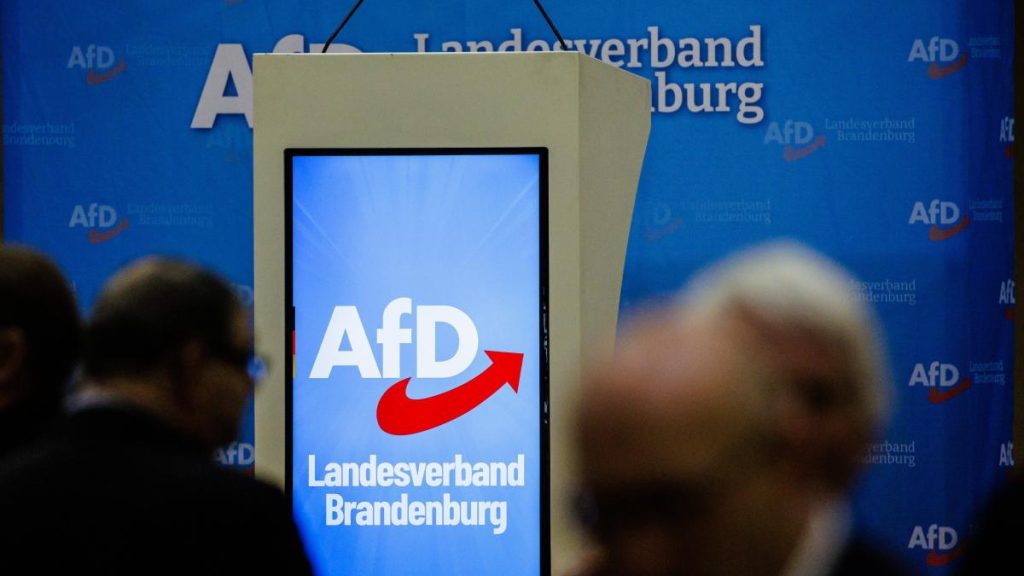Despite losing six percentage points compared to September, the AfD remains the strongest political force in Brandenburg with 26 percent, according to a recent poll. The SPD has narrowed the gap, now standing at 22 percent. Additionally, the BSW alliance, founded by Sahra Wagenknecht, would garner double-digit support even without an established regional branch. The current coalition of red-black-green parties could still hold the majority in parliament, with the CDU maintaining an 18 percent share.
48 percent of voters in Brandenburg view the presence of the BSW alliance positively, as it offers a different perspective from traditional parties. Supporters of the AfD (62 percent) and the Left party (49 percent) are particularly in favor of this new political option. The Greens are holding steady at 8 percent, while the Left party has seen a decrease to 6 percent. BVB/Free Voters would fall to 3 percent, potentially losing representation in the parliament. In terms of direct leadership preference, SPD’s Minister-President Dietmar Woidke leads the pack by a significant margin.
The upcoming state election in Brandenburg in September will be pivotal for the political landscape. The current coalition, led by Dietmar Woidke of the SPD, has been in power since 1990, albeit with different partners. The SPD’s recent polling numbers show fluctuations, with the party trailing behind the AfD in some instances. If a direct election for the Minister-President were held, Woidke would be the clear favorite, with only 7 percent supporting the CDU’s Jan Redmann and 6 percent for the AfD’s Hans-Christoph Berndt. The latest survey conducted by RBB included 1161 eligible voters from Brandenburg.
The voter sentiment in Brandenburg indicates a dynamic political environment as the election approaches. Despite the AfD maintaining its lead, the shifting preferences towards the SPD and other parties suggest potential changes in the state’s leadership. The BSW alliance’s emergence as a viable political alternative has garnered significant support, especially among dissatisfied voters looking for a fresh perspective. With less than six months until the election, parties will need to navigate these changing dynamics to secure their electoral success.
As the campaign for the Brandenburg state election intensifies, the focus will be on each party’s ability to connect with voters and address their concerns effectively. The nuances of regional politics, coupled with national trends, will play a crucial role in shaping the electoral outcome. The evolving support for different parties highlights the importance of reaching out to diverse voter groups and adapting to their changing preferences. Ultimately, the September election will determine the future direction of Brandenburg’s government and the challenges it will face in the coming years.


